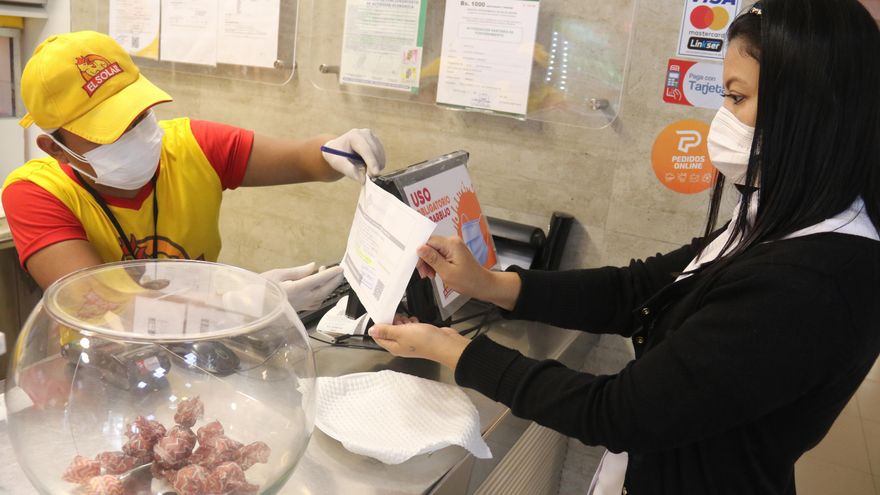RIO DE JANEIRO, BRAZIL – The pandemic crisis has forced several businesses in Bolivia to explore alternatives. The relationship between health and economy is not exclusive, through the promotion of vaccination against Covid-19 and a reward in kind for that action.
If you present your vaccination card, “I will prepare you the best coffee in the world” for free, “we will give you an ice cream,” or you get a “50% discount” at the sauna, are some of the strategies to get several enterprises out of the hole and encourage a return to normality as quickly as possible.
Read also: Check out our coverage on Bolivia
This is combined with efforts such as that of the Chamber of Gastronomic Entrepreneurs of La Paz (Cadeg) that has given way to the vaccination of its staff, according to its president Ernesto Olivares, to show the population that it is a “reliable” business and that “there is no problem” of contagion.
DIAGNOSIS OF A HARD TIME
During the whole time of the pandemic, the income of the food service sector is only a third of the total that was collected in normal times, and three out of ten activities related to the sector have closed, Olivares detailed.
The representative mentioned that the dynamic had been subsistence, of an “every man for himself”, due to the lack of incentives and economic aid in a stage in which the fixed costs of operation such as rents have been maintained.

In La Paz alone, Cadeg brings together some 120 companies and thousands of employees, which in turn is fed by a very diverse network of suppliers, so that “if the gastronomic sector is affected, a large part of the productive sector” of the country is affected, Olivares mentioned.
He also pointed out that the pandemic has generated the “fear of becoming infected” in customers and that restaurants, being “a business of trust”, have an obligation to articulate the need for economic subsistence with health security.
INTEGRATING HEALTH AND ECONOMICS
Brian attends at La Capital, a fast-food restaurant in La Paz where, for the mere presentation of the vaccination card, a chocolate brownie is given as a courtesy, which helps to “generate a little more income”, he said.
At Friends Chicken in Cochabamba, ice cream is given to customers who show that they have been vaccinated, something that Rebeca Lora said is a sign that the company’s logistics “has to improve on biosecurity issues” to regain normality.
Also, in Cochabamba, Norma Córdoba’s sauna advertises a “50 % discount” at the entrance, because, according to what she said, one of her goals is also to demolish the myths that those who get vaccinated “become werewolves” or “they put a surveillance chip on them”.
“For us, it is to reward that action to young people and people who say yes to life, yes to the economy,” Olivares remarked about the promotions that seek to encourage vaccination.
The combination of vaccines, promotions, and economic recovery is one of many new strategies in Bolivia since the pandemic disrupted economic activities in March of last year.
Remote care, for example, has made work on the Internet as rigorous as face-to-face treatment.
Attractive publications in social networks, advertising with “influencers” or “gamers”, innovating with promotions, or giving eccentric names to hamburgers such as “the ex” or the “toxic”, can be an alternative to lifting a sector strongly hit by the pandemic.
According to Cadeg data, in cities like La Paz, with almost one million inhabitants, the formal food and beverage sector generates 150,000 direct jobs and 400,000 indirect jobs.
Last March, some 3,000 food companies, representing 30 percent of those existing in Bolivia, have closed. All the remaining ones have had to take measures such as reducing personnel to maintain themselves.
The fall in turnover during the pandemic in the food and beverage area in the country has suffered a contraction of some US$44.9 million.

